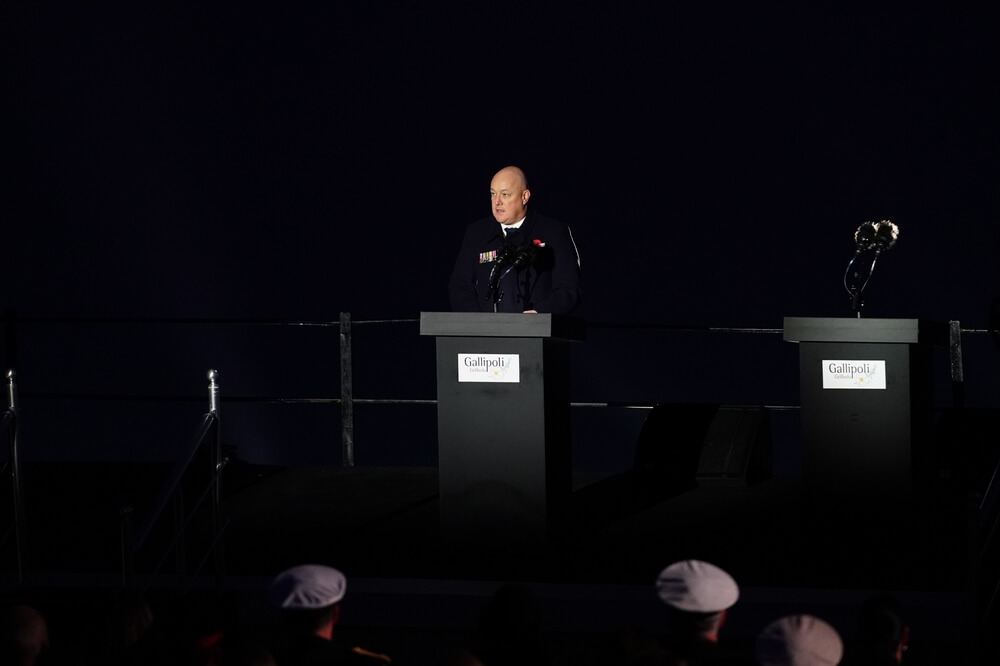At first glance, Christopher Luxon's planned visit to China and then Europe next week appears to be the usual bilateral protocol of a Pacific leader balancing between key trading partners.
However, the timing, geographical spread of destinations, and carefully publicised meetings with President Xi in Beijing and European leaders in Brussels and The Hague suggest that this is a much more serious attempt to position New Zealand on the global stage.
Luxon's visit to China will not just be a gesture of diplomatic decorum.
China is by far New Zealand's most important trading partner. In 2024 alone, exports to China accounted for over 28 per cent of the Pacific nation's total exports. New agreements on agricultural and technological products are already in preparation. Beijing used this visit in advance to send a message of "firm partnership without political conditions".
For Luxon, however, this is a two-way street. Although New Zealand is not a member of NATO, it is a long-standing partner in numerous security structures with the West.
From participating in missions in the Middle East to supporting the "Five Eyes" intelligence network, the link with the US, UK, and Australia remains vital.
Immediately following his visit to China, Luxon will travel to Europe, where he will hold talks with EU and NATO leaders and participate in consultations on expanding strategic partnerships with Indo-Pacific actors.
New Zealand's diplomatic asymmetry
What makes this trip particularly sensitive is the fact that it is taking place immediately before the important NATO summit in The Hague, where decisions are to be made on the longer-term financing of Ukraine and on further security policy and technological cooperation with partners outside the alliance.
Luxon's presence is not formal, but neither is it neutral. His agenda includes direct talks with EU member states on infrastructure investment, cybersecurity, and digital interoperability. It is a signal that New Zealand does not want to be on the sidelines or in between.
Strategy is based on "diplomatic asymmetry" - political participation without formal affiliation
The question that logically arises is how far a small Pacific country can pursue an independent policy at a time when explicit loyalty is increasingly expected from partners.
While Australia raises its voice against Chinese expansion in the South China Sea and actively participates in security arrangements, such as the AUKUS, New Zealand refuses to participate in militarised alliances. Their strategy is based on "diplomatic asymmetry", i.e., political participation without formal affiliation.
However, this model is becoming increasingly difficult to maintain. Beijing expects it to hold back on criticising human rights and security measures in the Taiwan Strait, while Washington more openly insists on aligning with Western strategic policies.
Luxon knows that he will have to offer more than neutral rhetoric if he wants to continue to enjoy the privileges of both worlds. His visit to China could be interpreted as signalling a departure from Western norms if it is not balanced by clear messages in Brussels and The Hague.
Choosing interests, not sides
On the other hand, Luxon has good cards in his hand.
New Zealand is the rare Western country that still enjoys credibility in Beijing. The absence of harsh condemnations in relation to Hong Kong and the refusal to introduce sanctions against Chinese companies have maintained business confidence.
At the same time, official Wellington is perceived in Brussels and London as a rational voice that could mediate in the more complex relationship with Beijing. And that is precisely his position as a negotiator — not one of power, but one of stability.
Avoiding a decision is often interpreted as weakness rather than independence
Interestingly, Luxon relies on the same message in both directions: New Zealand will not choose sides; it will choose interests.
This formulation, pragmatic as it may be, is not without risks. At a time when a new trade regime is emerging under US tariffs and global tensions are being digitalised through the control of chips, minerals, and communications networks, avoiding a decision is often interpreted as weakness rather than independence.
Another challenge awaits him in Europe — the crisis in global supply chains, in which New Zealand has so far played only a marginal role.
However, having a role in global food distribution, a digital trade strategy, and access to climate funds could give Wellington greater visibility.
New diplomatic realism
If Luxon succeeds in articulating a model of green and technological neutrality without aligning New Zealand militarily, it could set a precedent for other smaller states balancing between China and the West.
The significance is therefore much greater than is apparent from the protocol. Luxon recognises that this visit will shape New Zealand's foreign policy over the next decade.
 Luxon recognises that this visit will shape New Zealand's foreign policy over the next decade
Luxon recognises that this visit will shape New Zealand's foreign policy over the next decade
His ability to remain credible in talks with Xi while being acceptable to European allies will be a test of whether the model of diplomatic flexibility is still viable.
If he succeeds, New Zealand could become a model for middle powers seeking a place between the two powers. If he fails, he will have to face elections that he has so far successfully avoided.
In an age when every country is asked to align itself, the most difficult form of diplomacy is to try to be a bridge, not a front. Christopher Luxon may not offer spectacular messages or symbolic photos, but his quiet offensive could become an example of a new diplomatic realism.
If anyone can sit in two rooms with conflicting interests at the same time, it might just be New Zealand.